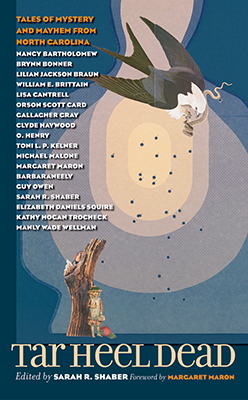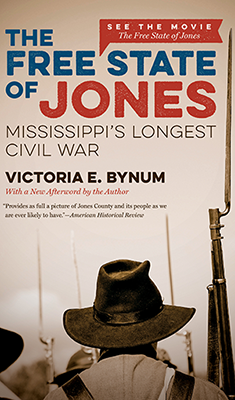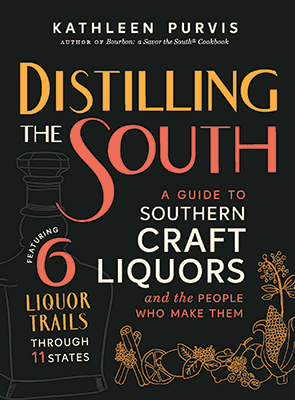
Now It’s Changing the Rules of Academic Publishing
Not too many university press publications find their way into the luggage of beachward-bound North Carolinians. The coast is for light reading—for books with pages that practically turn themselves. Academic publications are for classrooms, not for relaxation.
But then again, The UNC Press isn’t your average university press. True, many of its titles are formidable, with significant influence on scholarship and little popular appeal. But dig deeper into its catalog and you’ll find plenty of examples of how The UNC Press speaks to all North Carolinians, not just the academics who regularly digest volumes of research.
Not one, but two of its publications have recently made their way onto the silver screen as mainstream movies. One of its titles has sold well over a quarter million copies. The press’s strong suit is history, with a particular emphasis on Southern history and culture. But it also publishes books about music, running the gamut from pop and jazz to bluegrass and the blues. An extensive series of Southern cookbooks includes more than one way to fry a fish, to be sure. A selection of fiction highlights both established and up and coming North Carolina authors. Several titles delve into pulpy crime and horror—the stuff that so many vacationers turn to for their summer escapism, but with a distinctive Tar Heel flair.
In short, The UNC Press is right at home in the best university libraries, online, and on the sands stretching from Corolla to Ocean Isle.
The UNC Press’s vision is broad, demonstrating flexibility not just in terms of the type of content it produces, but also how it delivers content. As a result, it is currently enjoying something that’s virtually unheard of in the realm of university presses: financial stability.
Illuminating the South
In the era of digitized content, financial strains are undermining university presses across the US. It’s not just the smaller presses feeling the heat, either. Stanford University Press, one of the most prestigious academic publishers in the world, has spent 2019 in crisis mode as the university has threatened to withdraw financial support.
And yet, university presses are fundamental to the mission of higher education. They support younger faculty building their publishing portfolios. More importantly, the academic press is the primary platform where ideas are shared, debated, and evaluated.
University presses specialize in monographs—books that explore a single subject in meticulous detail and through the lens of rigorous academic analysis. This scholarship propels the dialogue that shapes our understanding of the world around us. While few Americans directly engage with academic manuscripts, nearly everyone has been influenced in some way by ideas that were first exchanged in academic circles.
John Sherer, Spangler Family Director of UNC Press, cites two examples to illustrate how academic publications can fundamentally reshape the way we understand American culture. In 1943, The UNC Press published influential historian John Hope Franklin’s first book, The Free Negro in North Carolina, 1790-1860. The next year, it published Eric Williams’ Capitalism and Slavery, one of the first texts to analyze the vast economic impact of the slave trade.
These books have become foundational. Scholars still rely on them as they begin their own research. More than that, over the decades, they have transformed how Americans think and talk about slavery.
“Of 110 books that we publish every year, 70 are monographs,” said Sherer. “In total, we have about 5000 books in print. That’s a substantive body of work—a silent, steady army of books that are having an impact in small ways.”
The influence of The UNC Press’s work also permeates the national consciousness in more obvious ways. Victoria Bynum’s The Free State of Jones: Mississippi’s Longest Civil War and Osha Gray Davidson’s The Best of Enemies: Race and Redemption in the New South are academic historical accounts that have made the leap from the page to the silver screen.
Many of The UNC Press’s publications, including its Southern cuisine cookbooks, are clearly designed to reach a wider audience. Mildred Council’s Mama Dip’s Kitchen is easily the press’s top-selling book. Sherer is quick to point out that even these non-academic publications are closely tied to the press’s educational mission.
“Soul food was not taken seriously as a cooking tradition that warranted a cookbook. Mama Dip’s Kitchen helped draw the culinary world’s attention to what had been undervalued and overlooked. Now Southern cooking is a hot ticket in publishing, and we find ourselves competing with mass market presses,” he explained.
This actually mirrors the larger mission of the press itself. When it was founded in 1922, it was the first secular publisher in the South. Previously, there were only publishers of hymnals, Bibles, and religious leaflets. Nationally, the South simply wasn’t even looked at as a region worthy of being studied. The UNC Press was a public investment to legitimize the state and the region as a culture.
“We think about that as we publish our books,” Sherer said. “When you put all our books together, we are making a statement: the South is important. Southern history is diverse and complex. Southern literature is a rich tapestry. Southern cooking is a thing. It’s not just a recipe. It’s folklore. It’s a culture. It manifests itself in many different ways.”
Pages Aligned: Fulfilling a System-Wide Mission
Most university presses are affiliated with individual institutions. The UNC Press is one of the few that is tied to a university system.
This presents a conundrum. During his tenure, UNC System President Emeritus Tom Ross posed the question to the Press’s leadership: how is The UNC Press aligned with the mission of the entire UNC System? The core of its publications clearly parallel UNC-Chapel Hill’s research in the arts and humanities, but Ross’s query articulated the need to tell a broader story—one that unfolds across 16 different universities, each with its own research and teaching profile.
To address this challenge, the Press began looking into strategies to expand its support for the publishing taking place at the institution-level. Conference proceedings, literary journals, institutional histories, manuscript reproductions … none of these materials fit The UNC Press imprint, but they are critical to the University’s mission. With copy editors, page designers, printers at the ready, The UNC Press was primed to help facilitate all of the diverse work happening across the System.
Four years ago, The UNC Press established The Office of Scholarly Publishing Services (OSPS) as a resource that would help universities produce their publications more efficiently and professionally.
In terms of subject matter, NC State Extension’s North Carolina Extension Gardner Handbook, UNC Greensboro’s Greensboro Review, and publications from the UNC School of Government couldn’t be more diverse. Taken together, publications like these present a bigger picture of the variety of ways the UNC System contributes to North Carolina.
OSPS efforts are also playing an important role in making education more affordable. For example, the OSPS is helping UNC Asheville and the North Carolina School of Science and Mathematics to develop open access textbooks. It is working with NC LIVE on its Open Education North Carolina initiative, as well. Innovations like these ultimately help keep costs down for students and researchers alike.
“The UNC System’s Strategic Plan emphasizes the importance of lowering barriers to access, and that’s one of the things we can really help people do—to produce high quality but inexpensive or free materials,” explained John McLeod, director of the Office of Scholarly Publishing Services.
To support departments and colleges that don’t have the resources to cover the bare-bones costs associated with OSPS publishing, The UNC Press established the Thomas W. Ross Fund Publishing Grant. The fund distributes microgrants in the amount of $500-$3000 to help offset costs. Since its establishment, roughly $44,000 has been distributed to constituent institutions—a number McLeod would like to see increase.
“This fund is named to honor a UNC System president who encouraged us to think more creatively about how the Press can support the University’s mission,” McLeod explained. “So we hope UNC System faculty and staff from across the System will explore the grant as an option for securing financial support for publishing activity.”
More information about how to apply for a publishing grant can be found on the Thomas W. Ross Fund Publishing Grant website. The next application deadline is August 1.
Publishing with a National Impact
The UNC Press’s influence extends well beyond the UNC System and North Carolina.
On three occasions in the past seven years, its publications have won a Bancroft Prize. Outside the Pulitzer or the National Book Award, the Bancroft is the most prestigious prize in The UNC Press’s area of specialization: history.
“People in the university press world would say that our peers are other public system presses, like Nebraska and California,” explained John Sherer. “But when you look at that award, you say ‘Oh, they’re competing with major trade houses like Basic Books and Knopf and more elite university presses like Oxford and Harvard.’ The fact that we’ve won that award so consistently shows we are punching above our weight.”
More recently, however, The UNC Press hasn’t just been punching above its weight—it’s been keeping other university presses in the fight as well. Longleaf Services, a separate 501(c)3, operates like a publishing cooperative. Organized by the staff at The UNC Press, eighteen presses partner to share the publishing costs in the areas that benefit from economies of scale: warehousing, design, printing, accounting, website building, sales representation, and managing metadata.
This arrangement allows smaller presses to save on production and distribution while preserving each imprint’s bespoke editorial elements. In other words, the arrangement gives the smaller presses the purchasing power of a large conglomerate without sacrificing the qualities that make them unique.
Other presses, including University of Chicago and Johns Hopkins, offer fulfillment services, but no other university press can match Longleaf’s extensive suite of services. This groundbreaking approach to publishing hasn’t just attracted partners in the United States. Longleaf Services counts Cork University Press, University of Calgary Press, University of Manitoba, and University of West Indies among its clients.

Changing the Narrative: Innovation in University Publishing
Initiated in 2006, Longleaf Services pushed the boundaries of university publishing. After more than two decades, it’s clear that this radical innovation has been an unqualified success.
Today, The UNC Press is embarking on a new experiment, which might just serve as a model for revitalizing struggling publishers: it’s going to give books away.
In an era when receipts are dwindling because of the proliferation of ‘free’ digital content, most business models adhere to the common practice of using paywalls and limited previews to preserve sales. The UNC Press is wagering that complete, untethered access to digital copies will actually generate more sales of print editions.
“Scholars use digital to discover potentially useful resources, but they frequently pivot to print as long as print is reasonably priced,” explained Sherer. “Research starts electronically, but when researchers understand that they’ve found a text that will be important, which requires immersive reading and deep engagement, they will invest in a hard copy. The durability and the pleasure of the print experience cuts across lots of different types of reading and disciplines.”
Even in mass market publishing, recent trends support this hypothesis. When the shift to digital began in 2007, prognosticators predicted doom and gloom for the bookstore. With triple digit growth of digital sales, many assumed that publishing was going to follow the music and film business and become dependent almost entirely on downloads. Bookstores would be completely replaced by screens.
But four years ago, book sales hit an inflection point. The digital market stopped expanding, and in recent years it has actually started to decline. Today in the industry, 70 percent of sales are print editions.
A few of The UNC Press’s older and out of print books are already fully digitized, but now the team is ready to proceed full scale with its experiment. In 2018, the Andrew W. Mellon Foundation awarded The UNC Press a million dollars to support the Sustainable History Monograph Pilot. Over the course of the next three years, twenty university presses will partner with Longleaf Services to produce up to 150 monographs. After five years, the press will have gathered enough data to rigorously evaluate the model’s effectiveness.
If the experiment proves successful, it will provide a new model for sustainability—one that improves access and maintains the quality and quantity of the books that quietly but assuredly enhance the quality of our lives. Peer-reviewed publishing is central to higher education’s mission. University press publications grow our knowledge base and enhance our understanding of our life experiences, so The UNC Press’s radical innovation might well be imperative.
A Progressive Force
As the first university press in the South and one of the very first in the nation, The UNC Press is guided by the vision to be “recognized as the nation’s premier public university press while remaining a progressive force in the state and region.”
Beyond being recognized as one of the leading publishers of academic scholarship, The UNC Press is getting national attention for reimagining the university press business model. But it has pursued these lofty goals without losing sight of one of its most important audiences: North Carolina’s general readers.
Those who are contemplating what to read on the beach should keep this in mind. With the waves lapping on the shore and toes squirming in the sand, you’ll already be digging into Southern terrain. A UNC Press book in hand will help you dig a little bit deeper.



